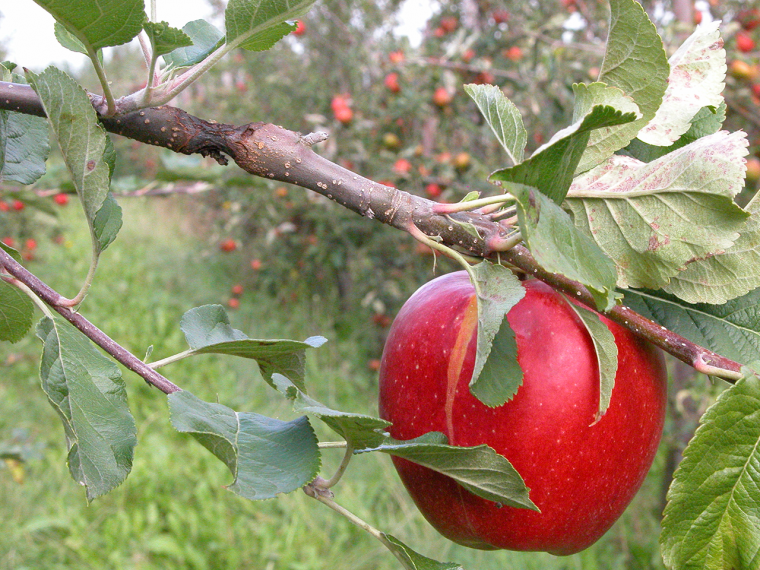Caused by the fungus neonectria ditissima, this is one of the most important diseases of apple and pear, causing cankers and dieback of young shoots, as well as fruit rot which can result in losses as high as ten per cent or more in stored fruit. Fungicides which are effective against canker, particularly for use in the growing season, are currently limited.
Two research projects, funded by AHDB Horticulture, are helping the fruit industry tackle apple canker.
In a two year trial examining control of neonectria fruit rot, a range of experimental fungicides, a biofungicide and several alternative chemical treatments were tested for effectiveness. During the trials, fungicides Delan Pro and Syllit 400SC reduced the incidence of fruit rot.
While fungicides are still needed by growers to tackle apple canker, with more products being withdrawn from the market there is a need for longer term IPM programmes.
A five year IPM study, commissioned by AHDB Horticulture, is examining how apple canker spreads. The project aims to reduce losses during tree establishment by targeting infection at the propagation phase and improving orchard control with novel and targeted applications.
Mark Holden, from Adrian Scripps Ltd in Kent and industry representative on the project, said: “Losses of trees due to canker have risen significantly over the last 10 years because of more intensive tree planting, particularly with more susceptible varieties such as Gala, Braeburn, Kanzi and Jazz. Apple canker is easily the most economically damaging disease in our orchards so any research towards control in the future is of great benefit.
“The main issue is the lack of systemic chemical products in the growing season which are effective for canker control so it is encouraging that some new chemistry is coming through that will add to the integrated approach to tackle this disease. It is hoped that, after the registration process is completed for these new products, the label requirements are not too restrictive.”
In previous AHDB funded trials, Folicur (tebuconazole) was shown to have useful activity. It now has an extension of authoristaion for minor use (0115/2015) and is available for use after harvest, during leaf fall.
Robert Saville from NIAB EMR presented results of the research at the AHDB/EMR association tree fruit conference on 28 February at NIAB EMR, Kent.
Photo: Marcel Wenneker, Wageningen




